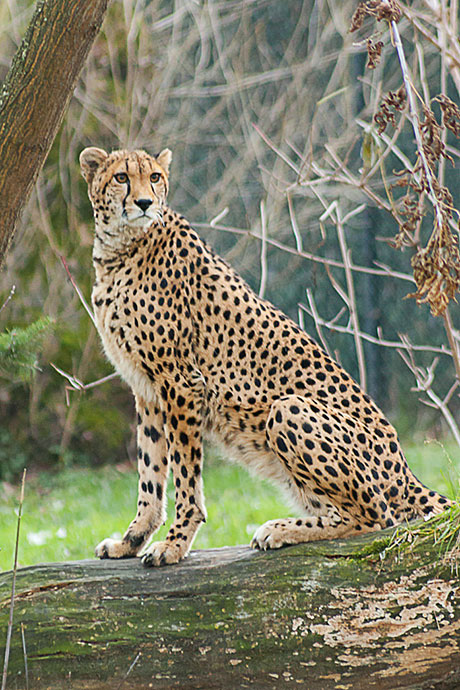Cheetahs are the fastest land animal on earth, but conservationists are raising serious concerns about a threat they can’t outrun: extinction.
While the plight of big cats around the world has gained growing awareness, it’s been mostly focused on lions and tigers. Now cheetahs are taking the spotlight, but it’s unfortunately over concerns that these amazingly fast animals are going to disappear forever unless urgent action is taken.
According to a new study just published in the journal Proceedings of the National Academy of Sciences, which was led by a team from the Zoological Society of London (ZSL), Panthera and the Wildlife Conservation Society (WCS), there are only an estimated 7,100 cheetahs left in existence in the wild globally — and they’re all in trouble.
“This study represents the most comprehensive analysis of cheetah status to date. Given the secretive nature of this elusive cat, it has been difficult to gather hard information on the species, leading to its plight being overlooked. Our findings show that the large space requirements for cheetah, coupled with the complex range of threats faced by the species in the wild, mean that it is likely to be much more vulnerable to extinction than was previously thought,” said Dr. Sarah Durant, ZSL/WCS lead author and Project Leader for the Rangewide Conservation Program for Cheetah and African Wild Dog.
Cheetahs once ranged widely throughout Africa, the Middle East and southwestern Asia, but they’ve continued to suffer from a variety of threats: habitat loss, fragmentation, conflicts with humans, a loss of prey and being hit by vehicles. They are also threatened by the illegal cheetah trade, which is driven by the demand for their skin and parts, and for live cheetahs who are sold as exotic pets.
They are now believed to have lost 91 percent of their historic range, and 79 percent of existing cheetah populations are now made up of fewer than 100 individuals. More concerning is that a majority of them live outside of protected areas, where they’re even more vulnerable to pressures. Over just the past 16 years, the population in Zimbabwe alone has dropped from 1,200 to just 170 individuals.
Conservationists believe that cheetahs are even more likely to go extinct than previously thought. For the past three decades, cheetahs have been listed as Vulnerable on the IUCN Red List of Threatened Species, but the study’s authors want to see that changed. They are now calling for them to be uplisted to Endangered in the hope that the new listing will help focus much needed conservation efforts on their plight.
Ultimately, they want to see on-the-ground efforts that include protecting habitat, working with governments of cheetah range states, and providing incentives for local communities to work toward coexisting with cheetahs. All of these efforts will require public support, political will and a lot of funding.
“We’ve just hit the reset button in our understanding of how close cheetahs are to extinction. The take-away from this pinnacle study is that securing protected areas alone is not enough. We must think bigger, conserving across the mosaic of protected and unprotected landscapes that these far-ranging cats inhabit, if we are to avert the otherwise certain loss of the cheetah forever,” said Panthera’s Cheetah Program Director, Dr. Kim Young-Overton.
To learn more about cheetahs, and how to help, check out Panthera, WCS and ZSL.
Join us in defending the truth before it’s too late
The future of independent journalism is uncertain, and the consequences of losing it are too grave to ignore. To ensure Truthout remains safe, strong, and free, we need to raise $43,000 in the next 6 days. Every dollar raised goes directly toward the costs of producing news you can trust.
Please give what you can — because by supporting us with a tax-deductible donation, you’re not just preserving a source of news, you’re helping to safeguard what’s left of our democracy.
